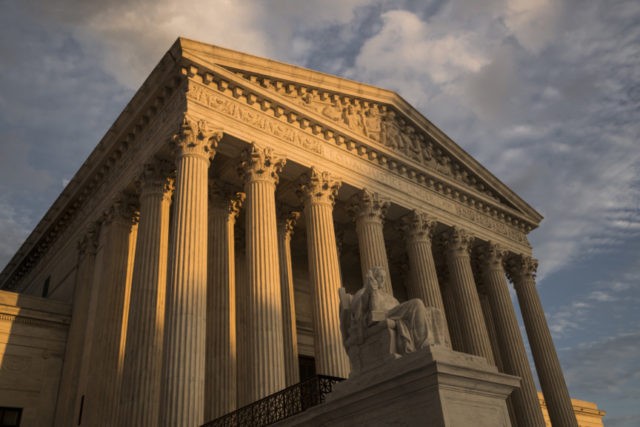WASHINGTON, DC – The Supreme Court added five new cases to its term for fall 2019, including racial discrimination, the environment, the death penalty, and international child abduction. On the same day, the Court refused to dive into declaring new legal rights for Islamic terrorists held by the U.S. military.
In Comcast Corp. v. National Association of African-American Owned Media and Entertainment Studios Networks, the justices will decide a case alleging that Comcast is behind a racist conspiracy. When negotiations between the cable giant and a group of black-owned media businesses fell apart, that group argued that Comcast intended to discriminate on the basis of the group’s owne’s race. Comcast is represented by two of the most respected Supreme Court litigators in the nation, Miguel Estrada and Tom Hungar from Gibson Dunn.
In Atlanta Richfield Co. v. Christian, the Supreme Court will dive into a CERCLA (Comprehensive Environmental Response, Compensation, and Liability Act) case. It will decide whether federal courts lack jurisdiction to decide certain property rights claims that conflict with EPA actions under CERCLA, and whether CERCLA preempts other state-law claims.
In McKinney v. Arizona, the Court will tackle the death penalty to determine what mitigating and aggravating evidence a state court must consider in a capital case under the Sixth and Eighth Amendments to the Constitution. Justice Anthony Kennedy often voted with liberal justices on death penalty cases, so this could be a revealing case for the Court’s new membership.
In Intel Corp. Investment Policy Committee v. Sulyma, the justices will determine how to apply the three-year time limit for ERISA (Employee Retirement Income Security Act). Obama Solicitor General Donald Verilli represents the company.
In Monasky v. Taglieri, the Supreme Court will decide America’s treaty obligations under the Hague Convention on the Civil Aspects of International Child Abduction, which requires children wrongfully removed from their country to be returned to it.
The Court also denied several interesting cases. Foremost among these is al-Alwi v. Trump, wherin an Islamic terrorist detainee in Guantanamo Bay argued that after 17 years of being held by the U.S. military, U.S. courts should now claim the power to consider setting him free. Justice Stephen Breyer issued a statement saying that he would not necessarily take this particular case, but believes the Court should grant a petition to review one of these cases. None of the conservative justices joined Breyer’s call to second-guess the national security decisions of the president and Congress on this matter.
Ken Klukowski is senior legal analyst for Breitbart News. Follow him on Twitter @kenklukowski.

COMMENTS
Please let us know if you're having issues with commenting.